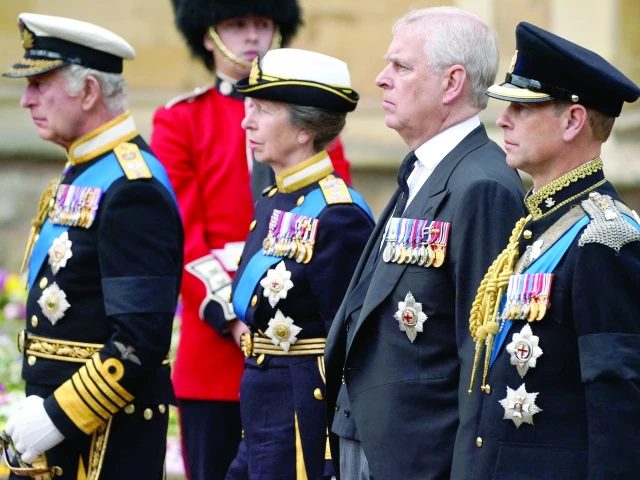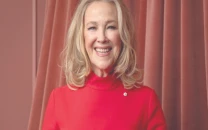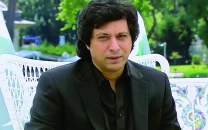The making and unmaking of a prince
Andrew's rise as a national hero and his ruin through scandal trace transformation of a royal once seen as untouchabl

Once the Queen's beloved "golden boy", Prince Andrew's transformation from war hero to royal exile has become one of the most dramatic downfalls in modern British history.
Now stripped of his titles and banished to rural Norfolk, the 65-year-old faces the twilight of his life as a man without a role, reputation, or public sympathy.
Born in Buckingham Palace on February 19, 1960, Andrew Charles Albert Edward was long seen as the late Queen Elizabeth II's favourite child. The handsome, affable young prince captured the public imagination - a decorated helicopter pilot who served with distinction during the 1982 Falklands War.
In those early years, Britain adored him as the approachable royal, more relaxed than his elder brother, now King Charles III. However, the charm that once made him popular evolved into arrogance.
Tabloids that once dubbed him "Randy Andy" began chronicling a lifestyle of extravagance, indiscretion, and questionable judgement. As Britain modernised and attitudes shifted, Andrew's behaviour - once shrugged off as harmless royal indulgence - began to jar with public sensibilities.
By 2025, a YouGov poll found that 91% of Britons held a negative opinion of the prince. "Arrogant, boorish, entitled," said broadcaster Jonathan Dimbleby, a close friend of the King - remarks that captured a national mood of frustration and disdain.
The allegations linking Andrew to convicted US paedophile Jeffrey Epstein proved catastrophic. Virginia Giuffre, one of Epstein's victims, accused Andrew of having sex with her on three occasions - twice when she was just 17.
The prince's catastrophic 2019 BBC interview, intended as damage control, achieved the opposite. His defence - that he could not have "profusely sweated" during the alleged encounter because of a medical condition - drew ridicule.
Worse still, he expressed no empathy for Epstein's victims. The fallout was swift. In 2022, the Queen stripped him of his military affiliations and the right to use his 'His Royal Highness' title. A year later, he paid Giuffre a multimillion-pound settlement to end a civil sexual assault case in the United States.
From that point, Andrew disappeared from public life. Royal biographer Ed Owens said he had spent "most of the last two or three years playing video games at the Royal Lodge" - a sad metaphor for a man now trapped in self-imposed isolation.
The disgrace extended to his ex-wife, Sarah Ferguson, whose resurfaced email calling Epstein a "supreme friend" led several charities to cut ties with her. The former couple, once Britain's fun-loving duo after their 1986 wedding, had long been an emblem of royal scandal.
For years, Andrew's reputation had wobbled under other controversies. As a government trade envoy after leaving the Royal Navy in 2001, his globe-trotting lifestyle earned him the nickname "Air Miles Andy".
He was criticised for staying in luxury hotels rather than embassies, and for questionable associations with authoritarian figures. His eventual resignation in 2011 ended another chapter of embarrassment.
Three years later, his charitable venture, Pitch@Palace, was launched to connect entrepreneurs with investors. Initially successful, it too became tainted by his lingering association with Epstein. Then came revelations that a suspected Chinese spy had been invited to his 60th birthday celebration - yet another blow to his already battered reputation.
King Charles's decision this week to strip Andrew of his remaining royal titles and evict him from the Windsor estate marked the final break. The move, reportedly after months of deliberation, ends a chapter of deep royal discomfort.
The former Duke of York will now live as Andrew Mountbatten-Windsor at Sandringham - a discreet exile, privately funded by the King. Charles's unprecedented action has drawn widespread praise. "Finally!" proclaimed The Sun, while The Daily Mirror called it "a long time coming".
Yet critics insist it is not enough. Giuffre's brother, Sky Roberts, said from the United States, "I commend the King... but we need to take it one more step further - he needs to be behind bars." The anti-monarchy group Republic has already instructed lawyers to explore possible legal proceedings.
Royal historian Ed Owens described the crisis as "the monarchy's third most severe in modern history", after the abdication of Edward VIII and the fallout from Princess Diana's death. "Charles has been out of other options for some time," he said. "This is a genuinely historic moment."
For now, Andrew remains eighth in line to the throne, though few expect him to appear at any official royal function again. Even his attendance at the traditional Christmas gathering at Sandringham appears unlikely. For Andrew Mountbatten-Windsor, exile may now be the closest thing to peace. AFP





















COMMENTS
Comments are moderated and generally will be posted if they are on-topic and not abusive.
For more information, please see our Comments FAQ